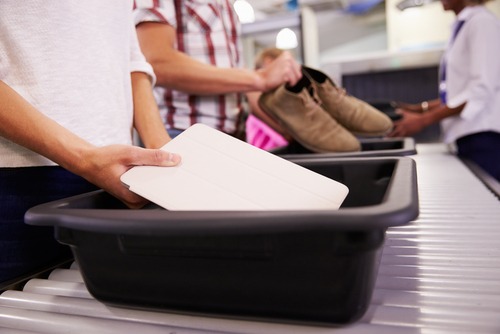
The Department of Homeland Security (DHS) recently announced its decision to require enhanced security measures as an alternative to restrictions on large portable electronic devices in the cabin on all flights to the United States, drawing some concerns from aviation stakeholders regarding the implementation of those requirements.
The decision would also have the ability to remove restrictions already in place for certain flights departing from the Middle East and North Africa to the United States.
The International Air Transport Association (IATA) supports the implementation of the new DHS security measures and looks forward to working with the department and other member airlines going forward.
“Keeping our passengers and crew safe and secure is our top priority,” IATA’s Director General and CEO Alexandre de Juniac said. “This creates a natural partnership with governments, which have the primary responsibility for security.”
The aggressive implementation timeline, however, he said, will be challenging. “Meeting it will require a continued team effort of government and industry stakeholders. In particular, airlines and airports will need to be supported by host states during the phase-in of the new requirements,” de Juniac said.
Airlines for America (A4A) responded cautiously, urging DHS to maintain its risk-based approach to aviation security, and to work closely with airlines and airports to effectively implement their new security plans.
“We recognize and share DHS’s commitment to addressing threats to aviation security. U.S. airlines not only share that commitment, but have substantial, practical expertise on these matters as we work every day to protect our passengers, crew, aircraft and the public,” A4A President and CEO Nicholas E. Calio said.
“While we have been assured that carriers will have the substantial flexibility necessary to implement these measures on a global scale, we believe that the development of the security directive should have been subject to a greater degree of collaboration and coordination to avoid the significant operational disruptions and unnecessarily frustrating consequences for the traveling public that appear likely to happen,” he added.
A4A and its members are willing to work the DHS and the Administration to address its concerns regarding the feasibility of meeting such a worldwide security plan.